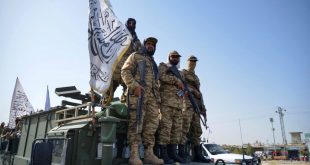KABUL — In a landmark farewell address on Monday, January 13, outgoing U.S. President Joe Biden stated that Afghanistan no longer poses a terrorist threat to the United States, citing the success of the withdrawal of American forces as a cornerstone of his administration’s foreign policy.
“Afghanistan has not served as a safe haven for terrorists or a threat to our homeland since our departure,” Biden asserted. “We have effectively managed Afghanistan remotely over the past three years, and our alliances remain strong.”
Reflecting on the broader strategy, Biden credited the Obama-Biden administration’s operation to eliminate Osama bin Laden as fulfilling the primary objective of the war in Afghanistan. He emphasized that al-Qaeda’s central threats now emanate from regions outside Afghanistan, negating the need for a significant U.S. military presence in the country.
“Critics claimed the withdrawal would weaken our alliances and expose us to foreign-directed terrorism from Afghan soil. Neither has occurred. We’ve employed over-the-horizon capabilities to address threats when necessary,” he said, defending the controversial decision to end the two-decade-long conflict.
Biden called the withdrawal “one of the significant achievements of my administration,” dismissing the justification for an extended U.S. military footprint in Afghanistan.
However, Biden’s remarks sparked reactions from experts. Political analyst Amanullah Hotaki remarked, “Biden has often delivered mixed messages on Afghanistan. Historically, Afghanistan has not been a safe haven for terrorists, and there’s no evidence to suggest it will be in the future.”
As the Biden administration prepares to hand over power to a new leadership team within the week, the political landscape regarding Afghanistan remains uncertain. The Afghan caretaker government has urged the incoming U.S. administration to reevaluate its policies, signaling an ongoing dialogue about the future of U.S.-Afghan relations.
 Afghanistan Times
Afghanistan Times




